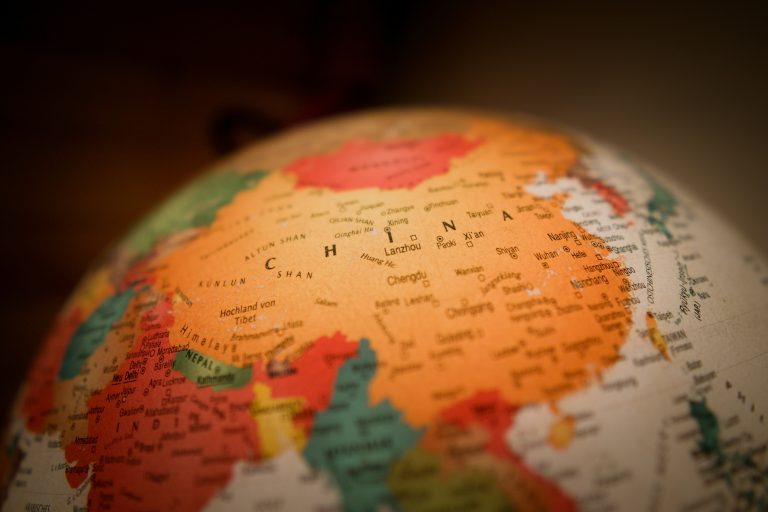Wang Jianguo is the collective pseudonym for a group of Chinese house church pastors writing and thinking critically about issues related to the spread of Christianity in their nation. They are committed to preaching a grace-centered gospel, developing resources for the church, and loving China’s urban centers.
In the year 1979, China, I was born into a family that observed the law and discipline. As the firstborn in the family that year, I could not have any younger brothers or sisters legally. As a well-known quote from the internet states, we were the first generation never to have seen our mothers pregnant.
Many of my American friends ask me about my feelings as a single child. Most of the time my answer would be “nothing special.” But when our government ended the one-child policy last week, some memories came to mind. There have already been enough comments, articles, and reflections on the internet; for me, I just want to share some special segments in my life.
Family
The 1980s were the age in which China turned to a market-oriented economy and our family was among the many families who started to pursue wealth from the poverty under the planned economy. There is a unforgettable memory for me even though I was still in pre-school. Every month, our family would have a ¥2.5 bonus (about 20 cents at that time) from the government as a one-child family, who responded to the national call. With the moral value of “no pain no gain,” my parents regarded it as a grace from the nation and praised my contribution to the family prosperity. I was satisfied by the praise.
School
The primary school I went to was located on the border of the urban and rural areas; classmates were called either “city people” or “country folk” (a contemptuous name for people living in the rural area). During that year rural people could still have children while the nation was practicing and propagating “family planning” in our area. There were slogans posted and painted on the walls around our school. I still remember a particular slogan on the longest wall of our school, two meters high and bright red: “Family Planning Is the Basic Policy of the State.” I read it at least twice a day, so I even came to believe that was the only basic policy of our nation and we lived for it.
Nevertheless, our teacher took me as a role model of obedience to the law and support to the nation in order to educate other kids from multi-child families. From an intellectual family, I did well academically by being tutored at home, but our teacher credited all my good scores as a result of “family planning.” All of this gave me a sense of superiority to those classmates who had brothers or sisters.
Skits
From time to time, we had new lingo to harm people. During the late 80s to early 90s, when I was in my primary school and middle school, there were two phrases we used. If we were describing somebody as a fool or slow, we would use “50 cents for 2.” This lingo is from a skit shown during the Spring Festival Gala, which ninety percent of Chinese families (0.9 billion people) watched. In the skit, the narrative was about an egg seller selling eggs at fifty cents for two, but when people gave him one yuan for four, he refused the business. That story ended with the discovery of the reason: the egg seller is a child from a family who violated the family planning policy because his parents were close relatives. (Marriage between close relatives is another prohibited item in the family planning policy, which is good.) But in my mind as a child, I built a tricky connection between any unlawful act according to the family planning policy and bearing fools. I was not the only one.
Moreover, when we saw rural people in the streets of Shanghai, we called them “over birth guerrillas,” which was also from a famous skit. The story sarcastically criticized two families who had “over-birthed” (had more than one child) as they left their hometown for the next birth. The feeling for most people watching the skit was that people who “over-birth” are anti-nationalistic and will live in the pain of exile and fear of hiding, and ultimately that those people are bad eggs.
DINK
In the year I graduated from college, one word became popular in the city, which was DINK (Double Income No Kid). It represented a lifestyle of fashion, career, freedom, and prosperity, which were the things chased by young people like me. The one-child policy was no more my boundary as we were persuaded by the culture to bear less. For a long time after I got married, we did not expect a child, even one, until we had our daughter in the eighth year of our marriage.
Stories
The first story is of a friend of mine, same age as me:
“Twenty years ago, I was a ten-year-old girl who knew things. One normal morning, I looked for my mom to help me wash my face, comb my hair, eat breakfast, and go to school. Dad came in and told me, ‘Mom decided to give you a younger brother, so she needed to leave and hide for a while. Never tell anyone!’ One year later, my mom returned with my newborn brother. During that year, my dad and I went through tremendous pressure spiritually, financially, and in our relationship.”
A year ago, my friend told me in pride and sadness, “I may be the minority in our generation who has seen my mom pregnant.”
Another story is about my wife:
One day in her childhood, her mom (my mother-in-law) said to her, “I conceived your brother and aborted him. Our family is too poor to give him a good life if I gave birth to him.” Helpless and calmness. As if it was not a life, as if there were no choice. As if she were telling her daughter, “I got a cold, took medicine, and everything is ok now.” Most of our parents never thought about free choice in bearing sons and daughters, and they were trying to persuade themselves that giving up the right choice is the best choice to a happy life. They pretended to be okay with that.
The opposite of the one-child policy is not the two-child policy, but freedom to bear children. When I think about it more deeply, we are no better than our parents when celebrating the replacement of the one-child policy with the two-child policy. We may not be effected by the national policy, we may have more choice to deal with it (many of our friends went abroad to bear their second child), but we are deeply effected by the values of the world – parenthood should not degrade my living standards, my financial standards, or my standards of freedom – because we are still afraid of losing comfort, pleasure, or something that gives us identity. We are still making the choice in fear.































